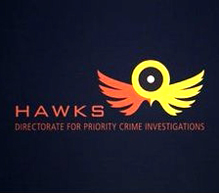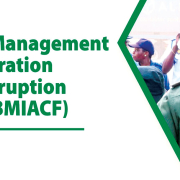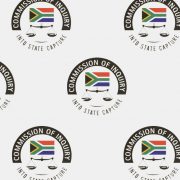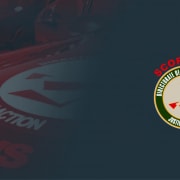|
Getting your Trinity Audio player ready...
|

5 April – Parliament has again come under fire over the draft South African Police Service Amendment Bill, also known as the Hawks Bill, which was tabled on 1 March.
Both civil society organisations and constitutional law experts have voiced their opposition to much of the Bill, arguing that it is not only inadequate but also unconstitutional. Corruption Watch joined forces with the Open Society Foundation of South Africa and the Legal Resources Centre to present a submission on the Bill to parliament’s portfolio committee on police.
The Hawks – more formally known as the Directorate for Priority Crime Investigations (DPCI) – are an elite crime-fighting unit established in 2009 after the Scorpions were disbanded.
In March 2011 the Constitutional Court ruled that the 2008 SAPS Amendment Act, which established the DPCI and set out how it would be governed, did not meet constitutional requirements for an effective corruption-fighting body free of political influence. The court gave Parliament 18 months to amend the Act; the draft Bill tabled on 1 March was the result.
Changes to the Act included retaining the DPCI as an agency of the police, as well as several improvements, which the three organisations acknowledged in their submission. These were, among others, the inclusion of requirements of impartiality and good faith for all members of the unit and the establishment of non-renewable fixed terms of office for the head, deputy head and provincial heads of the DPCI.
But Corruption Watch and its partners submitted that the draft Bill failed to meet all the requirements of the original judgment, mainly the “constitutional standard of adequate independence for the DPCI”.
Constitutional law expert Pierre de Vos joined the debate and prepared a memorandum on the proposed amendments.
“What is clear from the draft is that there is no political will to create an independent body free from political influence or interference to fight corruption,” De Vos wrote on his website Constitutionally Speaking, where he explores social and political issues from a constitutional law perspective.
“It would be far too dangerous for the kleptocratic members of the political elite to create such a body; hence the minimalist attempts contained in the draft Bill which attempts to create a partly independent body, but one which will retain ‘sufficient’ political control over it to ensure that the body does not investigate the ‘wrong’ people.”
He added: “But creating a partly independent corruption-fighting body is like making a woman half pregnant – not something that seems possible at present.”
In their submission to the portfolio committee (which can be accessed here), the organisations highlighted provisions in the Bill that would compromise the independence of the DPCI and suggested alternatives based on case law and relevant South African legislation.
Security of tenure and accountability were the primary issues identified as posing a threat to the DPCI’s independence.
“The DPCI must have an adequate level of structural and operational autonomy, secured through institutional and legal mechanisms, to prevent undue political influence,” the submission reads. “This covers limiting the possibility of abuse of chain of command and protecting against interference in criminal investigations and prosecutions involving corruption.”
In terms of security of tenure, the draft Bill contains no requirement for parliament to approve the appointment of the head and deputy head of the DPCI. “Public confidence in the appointment of the DPCI is critical to the effectiveness of the office,” reads the submission. “We submit that, on this basis, parliament ought properly to play a role in the appointment process.”
The organisations suggested that the appointment follow the model of the public protector and auditor general, as they too have an investigative function. They also suggested that the appointments could only be made if over 60% of parliament voted in their favour.
The submission pointed out that another shortcoming in the draft Bill is that it neglects to set out criteria to guide the appointment of the DPCI’s head and deputy head. Here it was again suggested that the Public Protector Act serve as a model.
Accountability was identified as the second major issue, as questionable provisions in the Bill could compromise the DPCI’s independence. “We emphasise at the outset that there is a crucial difference between taking political responsibility for the work of an entity and controlling it,” the three organisations said.
In the draft Bill, the ministerial committee’s power to determine DPCI policy guidelines has been removed; instead, this power will be exercised by the minister and approved by parliament. The problem here is that the head of the DPCI is given no role in determining policy guidelines.
“For an investigative body to be independent, it must be able to determine the subject of its investigations within the bounds of its constitutional and statutory mandate,” the organisations said. “The failure to extend this power to the head of the DPCI constitutes a serious infringement of the entity’s institutional independence.”
Changes made to the Bill about reporting to parliament are also problematic as they dilute the political responsibility of the DPCI as an independent entity. “The amendments sever the only direct accountability link between parliament and the head of the DPCI, and leave all representations to the national commissioner.”
This opens up the prospect of abuse of the chain of command; instead, the organisations suggested that this responsibility be moved from the national commissioner to the head of the DPCI.
“In the light of these submissions, we urge the committee to reconsider the location of the DPCI in the SAPS,” the submission reads.
“It is plain from our submissions that situating the DPCI in the SAPS creates a disharmonious structure that is damaging not only to the effective functioning of the DPCI, but also that of the SAPS. It creates unclear and overlapping lines of authority, and accordingly disrupts the hierarchy within the SAPS for no good reason.”
In an interview, De Vos said he believed the draft Bill would undergo further changes. “I hope the lawyers acting for parliament do their jobs,” he said. “I assume, but maybe that’s just because I am an optimist, that parliament will try to amend the Bill.”
According to De Vos, the deadline for making submissions to the portfolio committee – originally 27 March – has been extended to the end of April. Thereafter, the committee will hold hearings and debate the submissions made. According to the Constitutional Court’s judgment, parliament has until September to finalise the Bill.
Corruption Watch’s acting head of investigatory and legal services, Mary-Anne Munyembate, said it is vital for the Bill to be amended. “The public needs to have confidence that if they report a case of corruption to us and we, in turn, report it to the Hawks, the unit will be sufficiently independent to carry out its functions without political interference or influence,” she said. “Public confidence is thus key.”









